‘I have to fix me’
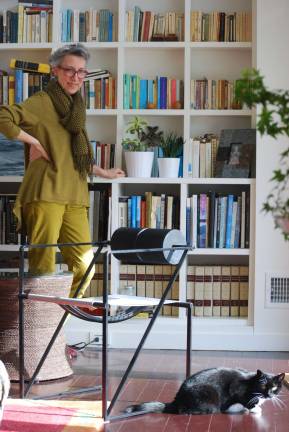
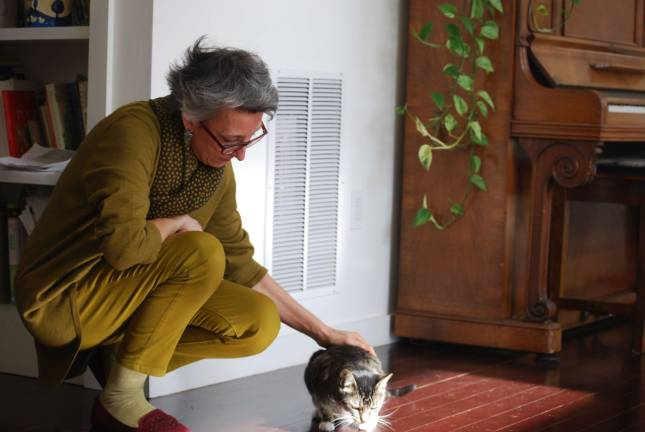
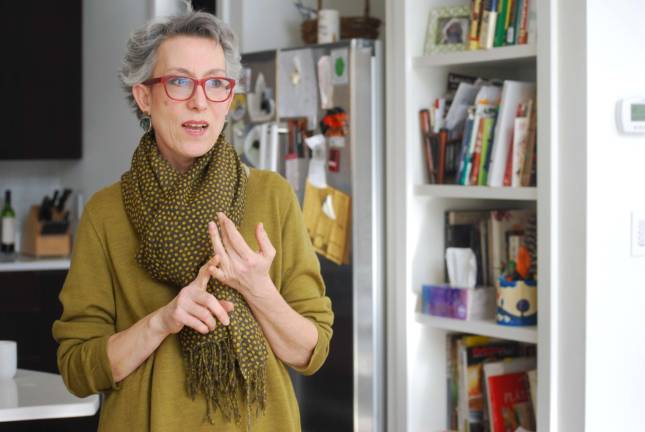
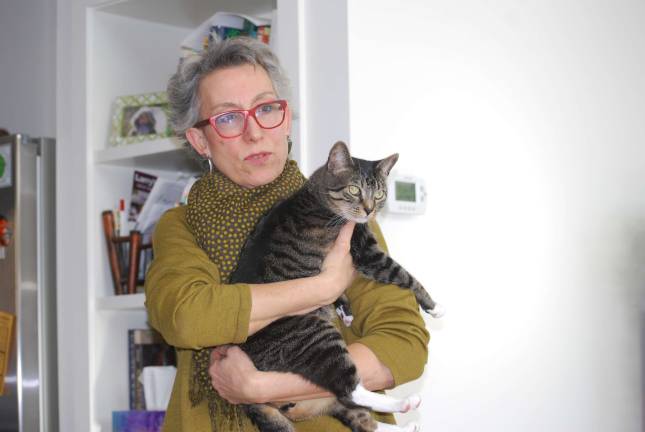
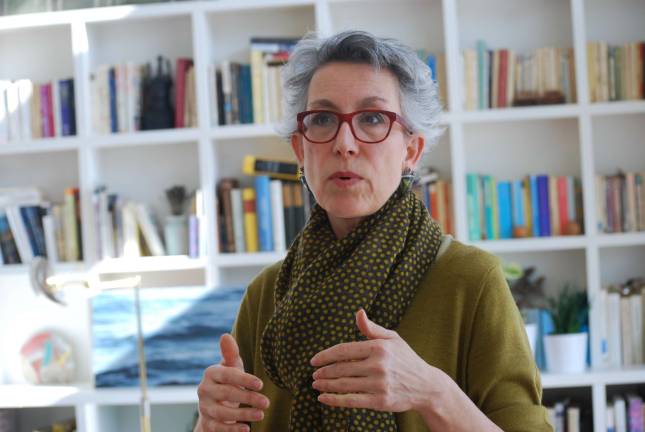
She ditched her antidepressant and wrote a book instead
By Becca Tucker
In German, you ask someone who is not well, “Was fehlt Dir?” which translates to, “What are you lacking?”
That’s the beauty of speaking multiple languages; it gives you not only a greater vocabulary but an entirely different perspective.
Susanne Meyer-Fitzsimmons, a Warwickian who grew up in Berlin, Paris and Brussels, was lacking something back in 2004, something she couldn’t quite pinpoint. She finally went to a doctor, who prescribed an antidepressant.
“I never take anything. I had two children without anything, so I mean, I’m totally against chemicals in the body because I know it’s a Band-Aid, it’s not a healer,” she said. “I said, you know what? It’s me. I have to turn it around. It’s not out there. So prescription medicine isn’t going to fix me. I have to fix me.”
Meyer-Fitzsimmons never filled that script. Instead, she went back to school.
What she was lacking, she says now, was fulfilment. The American way of running around checking items off an endless to-do list had left her passion for philosophy out in the cold.
“Professionally I’ve done all kinds of things in my life – from interior design to real estate planning to studying health to bookkeeping – but they all had to come together into something that would become my next sort of profession, what I would do. That is what I was lacking.”
So began a deep dive that would result in a book, seven years in the making, “Deep Living: Healing Yourself To Heal The Planet.”
In the net-zero house that she and her husband built, Dirt sat down with Meyer-Fitzsimmons to engage in a rather un-American activity: have a cup of tea – with fresh cream, skimmed off the top of a jar of raw milk. The cats lounge in the sun pouring into the living room. Books line the far wall and sit stacked on end tables. Atop the piano is a painting of birch trees (Meyer-Fitzsimmons has taken to buying exclusively local artwork), a cascading ivy plant, and an open book whose pages are folded into an origami piece. Books, books, books. I didn’t realize it until later, but I don’t think I saw a single screen in the living area.
Some 60 books are referenced in Deep Living’s appendix, by a slew of big thinkers from alternative medicine icon Deepak Chopra to permaculture founder Bill Mollison to the French philosopher Pierre Teilhard de Chardin, who conceived of the idea of the Omega Point, the maximum level of consciousness towards which the universe is evolving. And those are only the more mainstream works that ones that Meyer-Fitzsimmons devoured; the more academic ones she didn’t bother to list.
Meyer-Fitzsimmons is a sponge. “If I could I would just take classes and study, do workshops and weekend seminars all the time. I just soak it up. But in our culture,” she laughed, “there’s always this darn money pressure.”
She already had a degree in cultural and religious studies. Now, this sojourn to connect the dots would include earning a master’s in liberal studies through SUNY Empire State College. After soaking up a vast body of modern thought, Meyers-Fitzsimmons, working in her upstairs home office, riffing with professors mostly by phone or email, built her book chapter by chapter, each building on the one before. The result is a clear-eyed critique of what’s broken about American culture, but at the same time the book feels generous and non-judgmental in assessing how we got here – Susanne very much included – and optimistic about where humanity is headed (spoiler alert: we’re still evolving)!
Deep Living offers a buffet of interesting nuggets ready-made for dropping into a dinner conversation. Did you know, for instance, that perennial plants’ deeper root systems make them more nutritious than annuals, according to a permaculture course Meyer-Fitzsimmons took? Or that eating meals in company can make you live longer?
But for Meyer-Fitzsimmons, the “big aha moment” came when she started working on the chapter about different healing modalities like acupuncture and meditation, and how they juxtaposed with western medicine. To kick that chapter off, she researched the definition of health and healing, and that was when she realized that the lens she was looking through was a decidedly western one.
We view healing as something that happens to you after you get sick or hurt. The Eastern philosophy, on the other hand, emphasizes a continuous striving to maintain balance between body and spirit. If you’ve ever seen old folks in Chinatown greet the rising sun by doing Tai Chi, that’s the mental image. Life and death, wellness and illness are the yin and the yang; the latter are not forces to be fought or eradicated.
I forgot to ask Meyer-Fitzsimmons whether she was happy now. Whether she’d found what she was lacking. The question didn’t occur because the answer seems obvious. She laughs a lot. She’s already thinking about her next book project. To borrow an idea I discovered in her book, she’s vibrating on a high frequency.